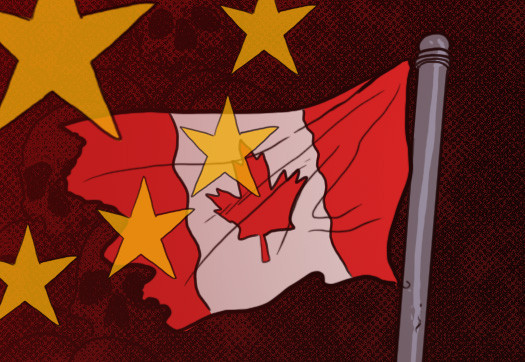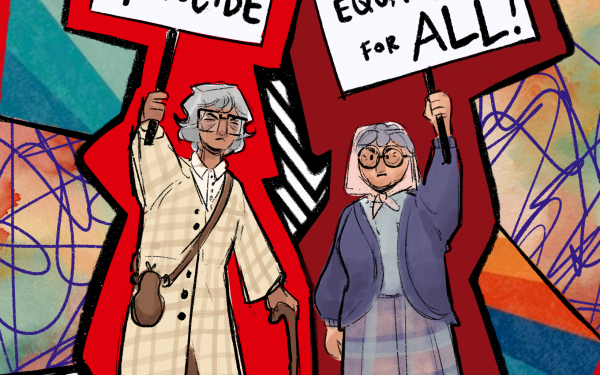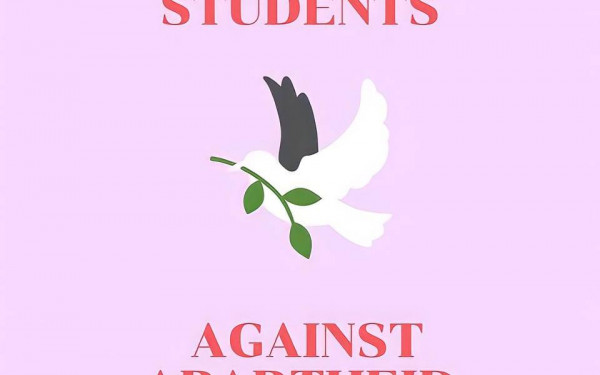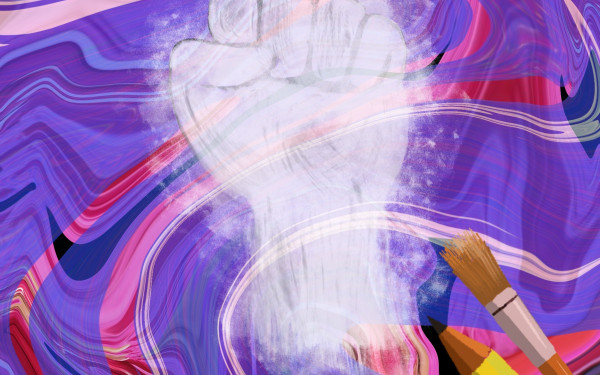China’s genocide on Uyghur people: A parallel to Canada’s overlooked history
How social advocates are responding to a lack of government action given Canada’s blatant backstory with First Nations
Content warning: This article mentions sexual assault, racial discrimination, and religious discrimination.
The ongoing genocide against the ethnic Muslim Uyghurs population in China’s Xinjiang region continues to worry communities and human rights groups in Montreal, as there still remains no concrete plan of action from the Canadian government to help alleviate the concerns from citizens.
After Canadian MPs voted in late February to officially declare China’s mistreatment of Uyghurs as a cultural genocide, Dr. Catherine Kinewesquao Richardson, director of First Peoples Studies at Concordia University, said Canada needs to clean up their act before they can weigh in on China’s current dilemma.
“I guess it’s a lot easier to point fingers at other people, but right now, in Canada, we have an issue where there’s over 5,000 Indigenous women who are unaccounted for,” Richardson said, in reference to Canada’s lack of support towards Indigenous women in particular. “There’s a genocide going on right now against Indigenous people that needs to be resolved.”
The National Post reported that China has detained, since 2017, more than 2 million Uyghurs and other ethnic minorities in internment camps where they are reportedly being subjected to systematic rape, forced labour, and torture due to their religious practice. President Xi Jinping and the rest of the Chinese government has long denied any existence of such camps, but after images of camp construction were leaked on the internet, China claimed these areas as “re-education centers'' for Uyghurs to “Sinicize” non-Chinese cultures, a PBS NewsHour report stated.
The National Post also explains that Canada recently joined the United States and the United Kingdom in implementing sanctions on China based on their ongoing acts of cruelty and injustice.
The global world has also tried to push towards sanctioning China, and considering how they are also scheduled to host the upcoming Winter Olympic Games in Beijing in 2022, worldwide human rights groups and political parties are urging the International Olympic Committee to move the games to another host country.
Global News reported that during a United Nations press conference in late March, Prime Minister Justin Trudeau said his government has “always been very, very strong in the defence of human rights.” He also added that the sanctions against China were aimed at making the point that the world’s “concerns about what’s going on (in Xinjiang) are significant and need to be responded to by the Chinese government.”
The Canadian government is notorious for their negligence and avoidance with the assimilation of First Nations people on home soil. CBC explained that nearly 150,000 Aboriginal, Inuit, and Métis children were removed from their families and communities and were forced to attend residential schools that practiced a policy known as “aggressive assimilation” throughout the 19th century, which were fully funded by the federal government. These innocent children were also subject to physical and sexual abuse while attending these schools.
“It seems like the government developed this hypocritical way of thinking where they want to seem good, but they don’t do the good things that follow their word.” — Ikrame Housni
The objective was to strip these children from their Indigenous roots and to prepare them for a lifestyle that would adhere to a newly modernized Canadian society. Convincingly, the government believed that the best way to succeed was for these individuals to adopt the norms of Christianity and to learn English, according to CBC.
“In this model of thinking, people think that part of our population is sacrificable or expendable for the greater good of the nation’s state,” Richardson said. “Ever since Canada’s inception, there’s been this idea that Indigenous people just get in the way of progress.”
In 2019, the Government of Canada invested $6.4 million to help 22 First Nations-led projects through the Indigenous Guardians Pilot Program, which enabled First Nations to take action to protect clean air and water, fight climate change, and help protect a healthy environment for Indigenous communities.
Although this investment may have assisted with the reconciliation of Canada’s Indigenous people, Richardson believes there’s still a bigger problem at hand that can’t be solved by one country. “We need to dismantle this colonial structure that is heavily guided by corporate influences,” Richardson said.
“Information is power, and the more we are aware of this ongoing cruelty happening in China, the louder our voices become,” said Ikrame Housni, the VP external for Concordia’s Muslim Student Association. “Our objective is to provide an inclusive environment for all students, and to organize awareness events on topics that target Muslims specifically.”
Housni explained that Islamophobia remains an apparent issue around the world that demands further attention. “There is not a deep understanding of why [Islamophobia] is still very problematic; it appears to be more superficial,” Housni said. “If we want to bridge the gap, we need to have a deeper understanding of the other.”
The MSA, along with the collaboration of other Montreal universities, held multiple fundraisers throughout the last couple years to help raise awareness on the situation in China and to raise funds for Uyghur refugees.
“It seems like the government developed this hypocritical way of thinking where they want to seem good, but they don’t do the good things that follow their word,” Housni said. “Ideally, our government should be able to censor their relationship with China until things change. Obviously, that’s easier said than done.”
The Montreal Institute for Genocide and Human Rights Studies is also one of the first organizations to meet privately with Uyghur communities in Canada and to provide an outlet for these individuals to have their voices heard.
“Canada should join other like-minded countries that have already condemned the persecution of Uyghurs,” said Marie Lamensch, a project coordinator for MIGS. “As a middle power country, Canada cannot achieve anything on its own. We need support from international governments.”
The National Post also addressed that calls for boycotting the games have been echoed by over 180 human rights groups across Canada. Although economic boycotts have seemed to help inspire and initiate change throughout moments in history, “the decision on whether or not to participate in Olympic and Paralympic games lies with the Canadian Olympic and Paralympic committees, as they operate independently of the government,” Camille Gagné-Raynauld, a spokesperson for the Foreign Affairs Minister Marc Garneau, told the National Post.
If our government ignores what’s truly important and continues to act in ways that will only benefit our economic state, “people will continue to remain skeptical about politics and their leaders,” Richardson said. “It just makes it harder when you live in a state of injustice.”







